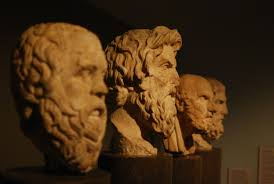Soul age>Infant Baby Young Mature Old
The Old Soul
BY PHILLIP WITTMEYER
At the end of a full life comes the time of old age. Much that can be said about an Old soul is what would be said about an old person. Usually old people have traveled to many places and done many things. They are a storehouse of wisdom and understanding because of this range of experience. But in spite of their competence they do not usually accomplish very much. Because of the age of the body, there is often a tiredness about them that prevents much expenditure of effort. They are quieter than younger people, have a more relaxed lifestyle, and are more subdued in their manner of expression.
They have mellowed out considerably compared to their younger days. The energy and excitement of youth is mostly gone. It is very similar with Old souls. They have access through the subconscious to a great wealth of experience. Often they become teachers to pass this knowledge and wisdom on, but to a limited number of students — there is little desire or effort to release their understanding into the world in general. In fact, in the last Levels, some Old souls can be so world-weary that they are ready to just lay down and die. Like a person in the last decade of life, the Old soul is “winding down” so to speak, or “in retirement”, preparing for death, settling the estate, and tying up loose ends. In terms of the theory of reincarnation, the Old soul is clearing the way for the final break with the physical plane.
Not unlike the Infant soul, but for different reasons, it is rare for an Old soul to make a great contribution to society or culture. The reason for this is that they have largely given up on the world. It just does not seem worth the trouble to spend a lot of energy for things that do not last. Material things just decay anyway, so why invest in that? The other problem is that they are advanced in their perceptions to such an extent that the genius of their contributions would go unappreciated by the great majority of people, the Establishment. Old souls know this and do not even try to get them to see it.
Younger souls, who largely control the course of society, cannot understand Old souls, and regard them and their notions as eccentric. Old souls are perceived to be “far out”, or “cranks”, if they do make themselves noticed. Younger souls are often too busy to stop and really listen to the wisdom of Old souls anyway. For these reasons, Old souls are rarely the movers and shakers of culture. As it is with many young people and old people, the situation is that the younger are out doing their thing and do not have time to listen to the old folks anyway. So the old folks do not even try to communicate. Old souls often have difficulty with self-esteem because their perceptions and values are not shared by the rest of society.

The Old Soul Is Often A Loner
In their social lives, Old souls are often loners. They go their own way, caring little for societal norms. They are a rare breed, comprising about eleven percent of the population. On the fringes of society, they obey the rules of their culture only as required to get by without causing trouble. They have very little attachment to encounters of a casual nature, such as coworkers and neighbors. Even their sense of connection to blood relatives is not very strong. They generally shun heavy entanglements with other people.
When they do get involved, it is because there is a strong spiritual bond. By this is meant that either there is a karmic attachment (past-life association), or what Michael calls an “agreement” — a contract made between lifetimes to conduct a relationship. A specific case mentioned by Michael is that Old souls seek to be united with the other fragments of their Entity. When Old souls do seek companionship, they often do so in metaphysical groups — astrology and tarot classes, psychic endeavors, and so on. Here they will be most likely to meet those with whom they have spiritual connections.
They seek out the few others who are like themselves, and form networks of people with similar interests. This is not usually for the purpose of business advancements like Young souls, or for psychological comfort like Mature souls, but just to share being with other Old souls. When Old souls “party”, they usually sit around and just talk. In dating situations, they do not need to go anywhere (like to a movie) or do anything (like play games) as a means to developing social intimacy. If the basis for psychological intimacy is not quickly apparent to the Old soul, he will not put himself through much trouble to develop it. It is difficult for Old souls to weld unions with people that they have not been together with in numerous past lifetimes.
Old souls are individualistic — they believe that people should basically do whatever they want to do, so long as it doesn’t hurt anyone else. The motto of the Old soul is, “You do what you want, and I’ll do what I want”. They rarely campaign for anything. They do not want to change the world — they just let it be. You might say they have the ultimate “laissez faire” (leave it alone) attitude — let nature take its course and don’t interfere with the system. “Live and let live” is another appropriate motto for the Old soul. They rarely organize into social clubs which have a hierarchical structure of leaders and followers, or join organizations which promote some cause. Rather, they form loose networks of friends and associates having common interests.
Old souls are operating in a dimension of personality different from the previous ages. The Infant, Baby, and Young soul ages are in Aspects of the Negative Processes. The Mature soul age is an Aspect of the Neutral Process. Old souls are in an Aspect of a Positive Process, Synthesis. This puts them in a class by themselves since the Transcendental and Infinite souls, also in Aspects of Positive Processes, only rarely manifest on the physical plane according to Michael (explained in the following section). And indeed, the Old soul is likely to sense his differentness. He may even think perhaps he does not belong on this planet. Old souls make up from 10 to 15 percent of the population.
An Old soul contains some of each of the Overleaf Traits in his personality. Like a person with the Acceptance goal, the Old soul is very tolerant of the differences in others and seeks to unify them. Like a person in the Power Mode, they are confident and assured of their abilities. Like a person in the Selfishness Feature, they are hedonistic in their desire to do what they want. Like Sages, they express wisdom to others. Like Idealists, they perceive the unity and beauty in the world. Like people in the Intellectual Center, they respond to situations by including them in their philosophical scheme.
The Old soul is in the process of removing himself from entanglement with the usual affairs of life. He does not have a strong sense of attachment or kinship with the world such as is possessed by younger souls. He wants to purge and purify himself of materialistic connections. His primary motivation becomes the pursuit of some specific life task, or perhaps spiritual refinement.
Like the Baby soul, it is unusual for the Old soul to pursue a career as such. That is, he may have a long-term occupation, but it is not his main interest in life. Most often a job is taken which does not overly tax or challenge the Old soul. This leaves him with enough spare energy to pursue his real purposes, such as resolving karmic entanglements, and pursuing truth and wisdom.
The Old Soul Has Few Psychological Problems
Old souls have very few psychological problems to deal with. Presumably, these have been worked through in previous lifetimes. Their subconscious access to depths of experience means that there is very little they do not understand about what is going on, both out in the world and within themselves. But Old souls do have one significant problem, and that is that they are subject to psychological depression. All the soul ages can be, to some extent, but especially the Old soul. The reason for this is that, to them, life seems heavy and boring — “life is a drag”. They perceive that it is all a game, a contrived situation, and they no longer want to play the game. They feel like they have seen it all, so what is there left to live for?
The material pursuits of Young souls seem quite futile to them, so what is there to get interested in? Even the Mature soul’s excitement about newfound truth seems passé to Old souls. This ennui can severely limit an Old soul’s happiness and well-being, and be a source of misunderstanding for younger souls who are enjoying life. Whether he understands it consciously or not in terms of reincarnation, the Old soul simply wants to graduate from the physical plane, and go on to new and better things in the higher planes.
But most Old souls do come around to the understanding of reincarnation at some time in their lives, even in countries where this is not taught as a dogma. It is possible for a person at any age and Level to have an appreciation of this metaphysical tenet, but to most Old souls it seems intuitively obvious. This is one of the perceptions that is inherent by reason of the depth of contact with the subconscious present in the Old soul.
The Old Soul Is Easy To Be Around
Old souls are typically easy for other people to get along with. They are usually agreeable associates because they know how to be gracious. The worst that can be said about Old souls is that they are often detached and aloof, perhaps even uninvolved. Younger souls do not understand this, although they may admire the fact that an Old soul can remain so cool in situations that younger souls find upsetting. There is not much in an Old soul that can offend a younger soul, though there is much that can be misunderstood by him. To some it may seem that Old souls do not care. It is more accurate to say that they are nonattached.
They do not make much investment in what is going on around them, and do not have strong expectations for any particular outcome. Whatever will be will be, so why fight reality? Old souls inherently perceive the broader perspective. They see that the world rolls on, day after day, year after year, millennium after millennium, with the same basic stories being told time after time with minor variations. Old souls know the big lesson of the whole Maturation cycle, and that is nonjudgmental acceptance of anything and everything. What little they cannot abide, Old souls simply avoid. Rarely do they seek to change things.
Old souls tend to follow the course of greatest efficiency. They seem to glide effortlessly through life. They “go with the flow”, and they “follow the path of least resistance”. Younger souls regard this as sheer laziness — lack of drive and willpower. This trait has its advantages and disadvantages. The good thing is that they are graceful and gracious when it comes to dealing with other people. The disadvantage is that they may lack the initiative to do what could be done. They often come up with great and innovative ideas because of their advanced and efficient perceptions, but they lack the energy to bring them to completion.
It is not intended that the above comments be used by Old souls as excuses for laziness and indifference. Once an Old soul realizes the cause of his condition, he can then take steps to mitigate it or direct it wisely. He need not pursue the goals of younger souls or share their value systems, but he can take his legitimate place as a valuable member of society if he wants to. As with senior citizens, just because the Old soul is “retired” does not mean he is worthless and powerless. Indeed, an Old soul can bring considerable wisdom and competence to bear in fulfilling a significant life task.
Old Souls Are Inherently Ethical
Because of their advanced perceptions, Old souls are inherently ethical in behavior, feeling, and thought. They do not have to be taught right and wrong by parents or society. There is some socializing to be done when they are children of course, but the programming for decency, honesty, and integrity is inborn. It is as if they are grown-up even when they are children. They always feel like they are older than their chronological age. They are conscientious and responsible. They are not usually jealous, envious, possessive, or pushy — any one of a number of things which involve attachment to other people. When Old souls are dealing with these ethical issues, it is with their subtle aspects. They are gentle toward the faults of others. The harsh perceptions often present in younger souls are absent here. They rarely perceive actions as being truly evil. Rather, they regard things that cause suffering as foolish and primitive, and they seek to cure the cause of the problem by imparting mature knowledge and understanding.
Old souls try to maintain neutrality in time of war. It is part of their nonattachment. There are certain nations listed by Michael as being primarily populated by Old souls, such as Switzerland, Holland, and Iceland, who value their independence and neutrality in political issues. Switzerland plays host to the Young soul nations at the Geneva peace talks, but does not get involved in their Young soul do-it-my-way games. If Old souls care anything for politics, it is that they are pacifists. Most often they are simply apolitical — they do not get involved with it at all.
Old Souls See The Cosmic Picture
Old souls have a universal perspective. They are not so much involved in family issues like Baby souls, or tribal issues like Infant souls, or national issues like Young souls, or global issues like Mature souls. Old souls see the cosmic picture. Old souls see themselves and others as parts of a larger system — another Synthesis Process perception. Their attention is on the workings of this system. They see how all parts of the system relate to each other rather than getting lost in the petty details. The depth of wisdom of Old souls shows in their eyes. They have a direct, penetrating stare — it looks right through you, seeming to know. Profound issues are their concern, not the trivial. In their efficiency, they want to get right to the heart of the matter and skip all the superficialities.
Old souls are casual and easygoing about everything. Nothing is any big deal to them. Almost never are they outrageous or outlandish. They are rarely concerned with outward appearances — external image or formal trappings. In extreme cases they can even appear sloppy in clothes or habitat. Rarely are they overly concerned with what other people think.
Old souls pursue education with the same casual attitude as they do everything else in life. Grades are of very little value to them. The learning itself isn’t all that important unless it furthers a specific life task. Old souls tend to cut out the material pursuits that occupy so much of the time and energy of younger souls, and concentrate what little energy they have on spiritual integrity. By this is meant the need to understand the truth, and the reason for things. Old souls rarely participate in organized religion. They are often drawn rather to metaphysics, mysticism, philosophy, and the occult in their quest for understanding. It is difficult for them to synthesize their physical with their spiritual selves. They often seek unorthodox and holistic medicine rather than going to the medical establishment.
Old Souls Are Not Mainstream
In some ways, it can be said that Old souls are in the most difficult age. In the first place, they do not fit in with the culture so they are often thought bizarre. They are definitely out of the mainstream of society and care little for its formal institutions. In the second place, they are often too world-weary to do what needs to be done to solve their own problems, let along anyone else’s .Since they tend to follow the path of least resistance, unless they feel internal and external forces pushing them, they don’t go anywhere or do anything.
No matter how much they might need it for building Character, they will only tolerate just a certain amount of stress in any given situation. Then they will get depressed and just chuck it all and move on. In the third place, there is a certain arrogance in Old souls in that they often feel they cannot learn from younger souls. They are aware of their maturity, even if only subliminally, and regard younger souls as foolish. This is not truly wise. There is always much to learn, even from one’s juniors. In the fourth place, there is very little left that Old souls want to experience in life. They feel like they have done it all — so why bother to do more? “There is nothing new under the sun” is another good motto for the Old soul.
Even sex is not highly prized by the Old soul. He is usually competent therein, but his lack of interest for it, and the lack of passion in it, can be disconcerting to younger souls who still prize sex highly. Old souls are often hedonistic and sensual, however, and can have a bawdy sense of humor. Old souls are often androgynous (having balanced masculine and feminine characteristics), and occasionally bisexuality is a part of their lifestyle. Gender identification is often weak in this Age because of subconscious contact with the whole psyche, which includes both masculine and feminine characteristics. What the Old soul seeks in romantic relationships is a “soul mate” — someone to whom he relates on a soul level. This might be someone else with whom he has spent many lifetimes, or another soul in his own Entity. The drive for this is so strong that it could be described as a compulsion.
Like an old person, the Old soul is in the process of withdrawing from the physical plane. He does not want to make an investment in something that he regards as ephemeral and transitory. The motivation now is for spiritual purity. Most of the Monads which it is established for the Old soul to complete have to do with being, rather than doing (like the Young soul) or feeling (like the Mature soul). The Old soul just is. He simply experiences life as it passes through his consciousness. He is not unlike an Infant soul in that he often leads a simple life. He does not want to complicate it with intense relationship entanglements and severe challenges. In a reincarnational sense, Old souls are paying off final karma, and they do not want to incur any more, so they play it safe by remaining apart from the heavy drama that entertains younger souls.



